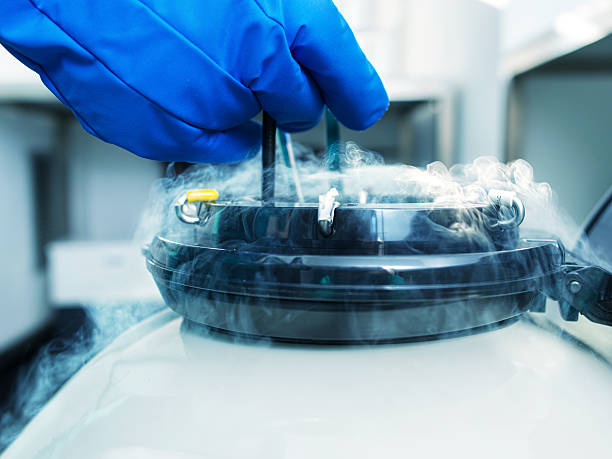A Comprehensive Guide to Egg Freezing (Oocyte Preservation)
A Comprehensive Guide to Egg Freezing (Oocyte Preservation)

Oocyte Cryopreservation, commonly referred to as Egg Freezing, is a medical procedure that involves freezing and storing a woman’s oocytes (eggs) for future use. This technique has become increasingly popular in recent years due to its potential benefits, including giving women the option to delay pregnancy and preserve their fertility. However, many people have fears and concerns regarding the process, such as the survival rate of the eggs, the cost, and the potential emotional impact.
Understanding Oocyte Survival Rates
One of the primary concerns of oocyte cryopreservation is the survival of the eggs after they have been frozen and thawed. The survival rate of the eggs depends on several factors, including the age of the woman when the eggs were frozen, the quality of the eggs, the reason for freezing, the technique used as well as the skill of the embryologist. Research has shown that the survival rate of frozen eggs can vary between 60-90%, with the best results being obtained in women under the age of 35.
The two most commonly used methods are slow freezing and vitrification. Vitrification is a latest and more effective technique that has significantly improved the survival rate of eggs.
Benefits of Oocyte Cryopreservation
The primary benefit of oocyte cryopreservation is that it allows women to delay pregnancy and preserve their fertility. This can be especially beneficial for women who want to focus on their careers or other life goals before starting a family. It can also be helpful for women who may be facing medical treatments that could affect their fertility, such as chemotherapy or radiation therapy, for cancer and other non-cancerous conditions including uterine fibroids (recurrent) and endometriosis.
Oocyte cryopreservation can also be helpful for women who are not yet ready to start a family but want to ensure that they have the option to do so in the future. This can be particularly useful for women who may not have found the right partner or who are not financially or emotionally ready to start a family.
Who Can Benefit from Oocyte Cryopreservation?
Any woman who wants to preserve her fertility can benefit from oocyte cryopreservation. However, it is important to note that the best results are obtained in women under the age of 35. Women that fall into the group mentioned above will benefit from oocyte cryopreservation.
Fears and Concerns
Despite the potential benefits, many people have fears and concerns about oocyte cryopreservation. One of the primary concerns is the cost of the procedure, which can be expensive. In addition, some women may be concerned about the emotional impact of delaying pregnancy and may worry about their ability to conceive after the eggs are thawed.
Another common fear is the potential for the eggs not to survive the freezing and thawing process. While this is a valid concern, it is important to note that the survival rate of frozen eggs has improved significantly in recent years, especially with the use of vitrification.
Fertility clinics with high oocyte survival rates are highly sought after by couples struggling with these fears, as they offer the best chances of successful pregnancy and live birth with frozen eggs. These clinics typically have state-of-the-art equipment, highly trained embryologists, and strict quality control measures to ensure the best possible outcome.
At the Nordica fertility centre, over the past three years, our oocyte survival rate has been consistently well above the international average. In the year 2020, we had a total of 79 oocyte thawing procedures, of which 76 survived, an overwhelming success of over 96.2% and in 2021, of the total 834 thawing procedures that were carried out, 672 survived, an 80.6% success rate. This trend of success continued on to 2022 where we had a total of 1155 oocyte thawing procedures of which 1066 of these oocytes survived giving us a success rate of 92.3%. In the last 3 years, of the 2068 oocyte thawing procedures we carried out, 1814 of those oocytes survived and went on to be used in fertility treatments of our patients, this is a cumulative average of 87.7%, well above the accepted 70% survival rate.
Our continued success is due to our personalised treatment plans, our advanced laboratory techniques, and our experienced team of fertility specialists and embryologists and this is a testament to our commitment to providing the highest level of care to our patients. We understand that infertility can be a challenging and emotional journey, and we offer a range of counselling services and ongoing support to help our patients cope with the stresses and uncertainties of treatment. We believe in a collaborative approach to care, and we work closely with our patients to develop individualised treatment plans that meet their unique needs and goals.
In addition to our high oocyte survival rates, we also have excellent success rates for embryo transfer and live birth with frozen eggs and many of our patients achieve their dream of starting a family. We are very proud of the work we do and the impact we have on the lives of our patients.



